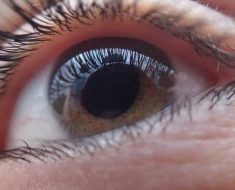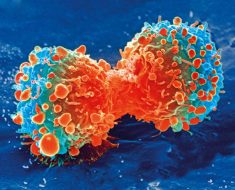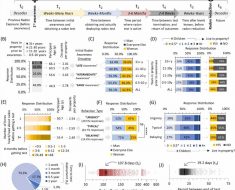
Let’s face it – nobody likes being rejected.
But for some people, especially those who are autistic or have ADHD, even the notion of rejection can lead to emotional outbursts, low self-esteem and even periods of depression.
This hypersensitivity and (often unfounded) fear of rejection is something a lot of neurodiverse people experience, but up until five years ago, it didn’t have a name.
‘Rejection sensitive dysphoria’ (RSD) was a phrase first coined in 2017 by Dr William W. Dodson, a psychiatrist who specialises in ADHD.
It isn’t a diagnosis in and of itself, but is an umbrella term that describes a myriad of symptoms often found in people with ADHD.
‘Dysphoria’ is the Greek term for ‘unbearable,’ which for many people with ADHD, is the best way to describe the level of pain they feel when they come across a perceived rejection.
In an article for Attention, a magazine published by ADHD charity CHADD, Dr Dodson defined rejection sensitive dysphoria as ‘a triggered, wordless emotional pain that occurs after a real or perceived loss of approval, love, or respect.’
‘The pain is so primitive and overwhelming that people struggle to find any words to describe it,’ Dr Dodson wrote. ‘They can talk about its intensity (“awful, terrible, catastrophic”) and cannot find words to convey the quality of the emotional pain.’

While the exact cause of rejection sensitive dysphoria is unknown, research shows that a lot of people with ADHD struggle to regulate their emotions, with their nervous system often struggling to regulate and react proportionately to external stimuli.
Anna Granta, a specialist life coach who trains neurodiverse people to rejoin the workforce, tells Metro.co.uk that rejection sensitive dysphoria ‘can be devastating.’
‘The pain of rejection is so intense that rejection sensitivity often causes fear of criticism, perfectionism, fear of visibility, and social anxiety,’ she says.
Eleanor Noyce was recently diagnosed with ADHD. She says rejection sensitivity has a profound impact on her.
‘Rejection sensitive dysphoria can be really painful for me, and it means that I often jump to unfounded conclusions about how people perceive me,’ she explains.
‘So, if someone cancels on me, even if it’s for a totally valid reason, it turns into a big existential crisis about my place in the world and how much my friends value me.’
A second woman who wanted to keep her identity private – we will call her Emma – tells Metro.co.uk that she also experiences rejection sensitive dysphoria as part of her ADHD.
‘I’m always pretty conscious of how I present myself and interact with people – especially if they’re new,’ she says. ‘I’m also prone to panic if my friends don’t respond to messages for a while, and often jump to assume that I’ve done something wrong or offended someone.’
In fact, 30% of people with ADHD report dealing with rejection sensitive dysphoria in some way – but there are ways to cope with it.
Tips for dealing with rejection sensitive dysphoria
According to specialist life coach Anna, the best way to cope with RSD is to ‘acknowledge that it is real, that the pain is real, and that you are strong enough to experience that pain and keep going.’
One thing she recommends is trying to go outside your comfort zone slightly, and putting yourself in situations that will ‘stretch your tolerance for rejection just a little bit.’
She says you should make these situations ‘as safe and supportive as possible.’
‘For example, if you are planning a social event, check that a couple of people you trust will come, before sending wider invites. This way you know you won’t be left alone & feeling rejected,’ she adds.
‘Gradually build up your ability to handle situations, celebrating your progress as you manage new situations.’
Because RSD and ADHD is linked with emotional dis-regulation, Anna says this may be the result of a lack of serotonin.
As well as consulting your GP, Anna suggests ‘spending time in the daylight each day, eating lots of different types of plants, and low-intensity exercise’, in order to naturally boost your serotonin levels.
Meanwhile, for those who come across a situation where they feel rejected, psychotherapist Caroline Plummer says she always encourages her therapy clients to ‘take a step back.’
‘Ask yourself – “do I feel like I am being personally attacked or rejected?” If the answer is yes, then ask yourself if the evidence suggests that that’s what’s really happening.’
She continues: ‘The overwhelming feeling might suggest you are being slighted, but often that’s exactly what it is – just a feeling.’
‘If your friend says no because they have other plans but they happily spend time with you on plenty of other occasions and even seek to invite you to events, then the likelihood is your feelings of rejection are skewing your view of reality.’
According to Caroline, practicing the technique of stepping back and looking for the evidence can be a ‘powerful tool for managing misguided feelings of rejection.’
As for Emma, having a good support system that understands ADHD and rejection sensitive dysphoria makes all the difference.
She says: ‘It’s embarrassing and makes me feel neurotic at times, but I’m lucky to have people in my life who will reassure me if I’m freaking out for no reason.’
Source: Read Full Article





